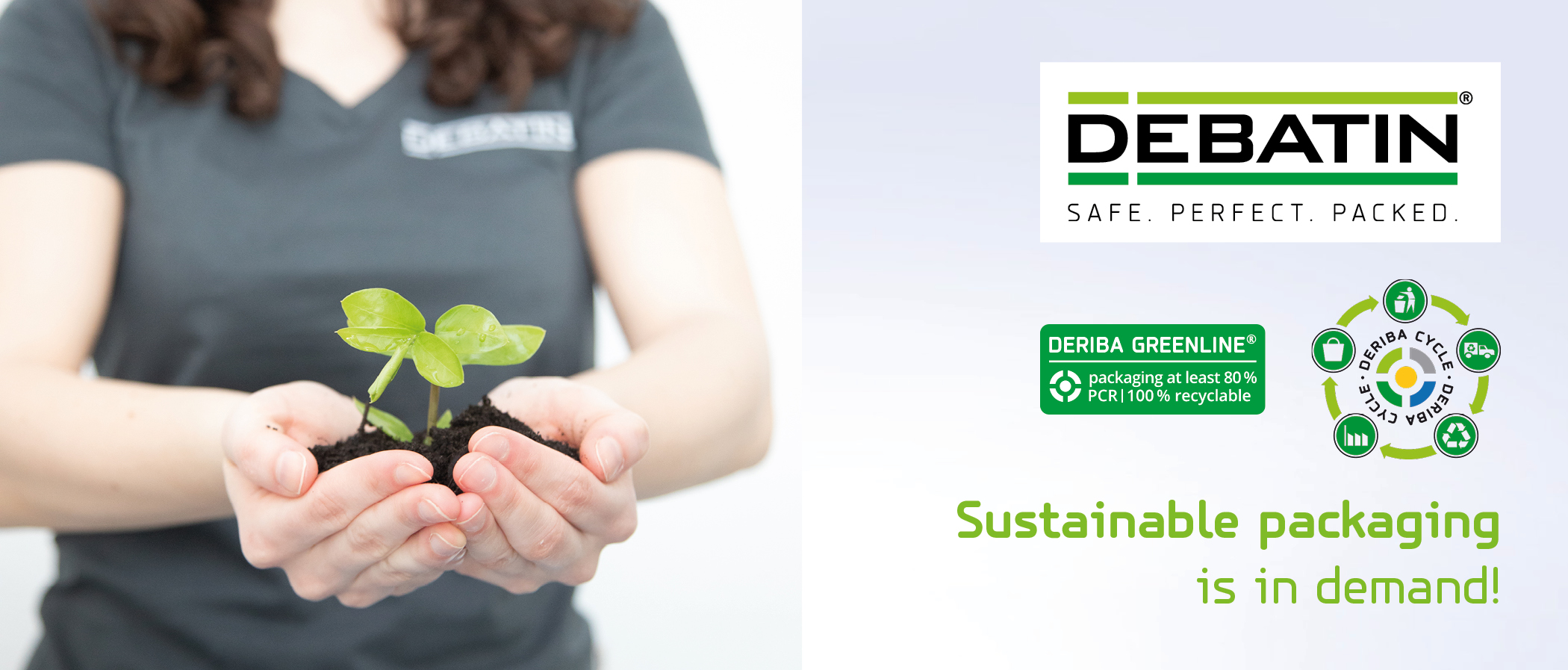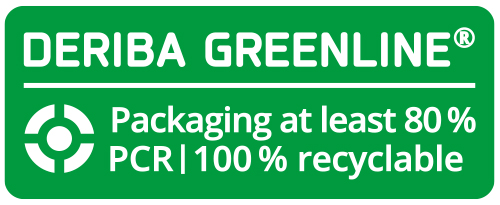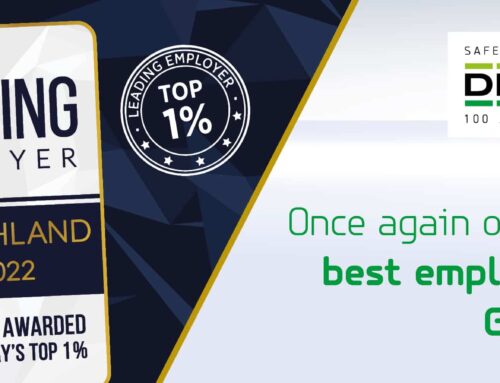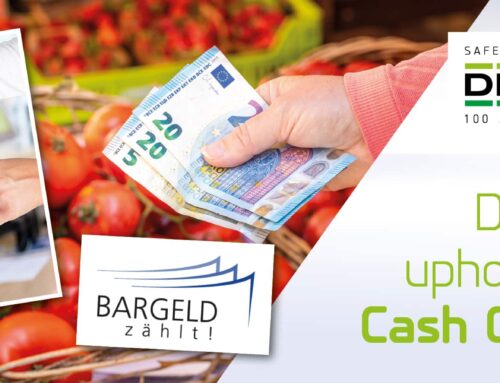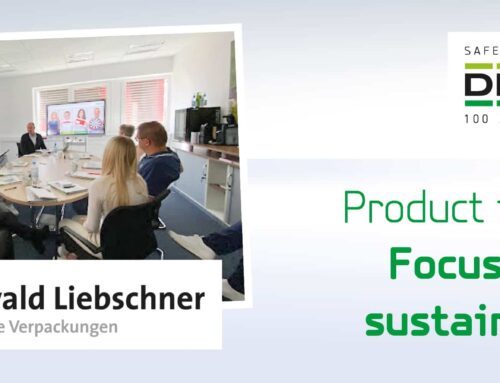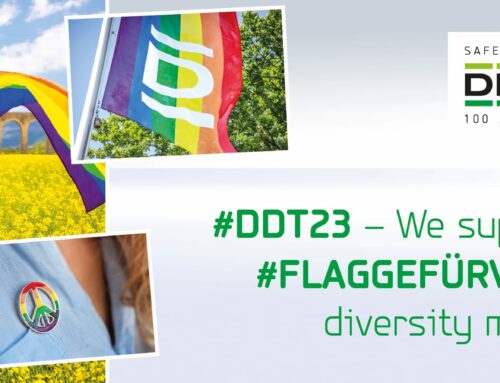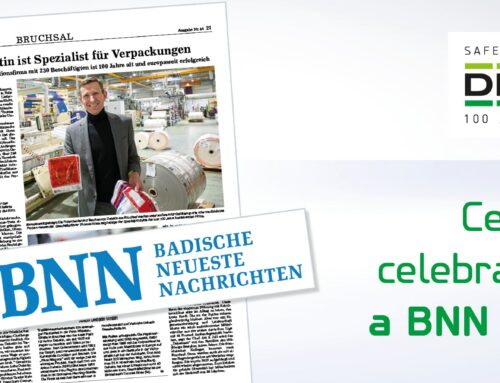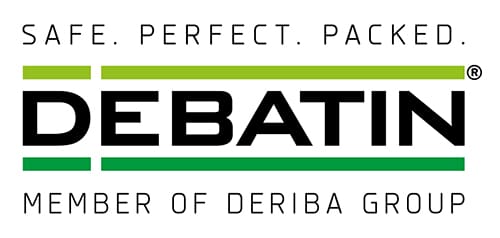According to the UBA (German Federal Environmental Agency), Germany generated 18.9 million tonnes of packaging waste in 2018. Consumers generated around 108 kg of domestic packaging waste per person, and the total per capita rate exceeded 227 kg per person. The data shows that packaging waste has risen sharply over the last two decades. Moreover, lockdown measures connected with the COVID-19 pandemic exacerbated the situation even further. People spent more time at home, worked from home, dined out less often, cooked more at home, and ordered more goods online.
As a result, we generated (and continue to generate) more domestic waste than ever before. To add further fuel to the fire, numerous recycling centres closed, at least temporarily. So instead of taking certain types of waste to recycling points, consumers disposed of it in regular bins along with their normal household waste.
Over the last twenty years, the amount of waste we generate has doubled. According to Eurostat (the European Statistical Office), Germany produces 609 kg of municipal waste per person, which is markedly higher than the EU average (around 502 kg). “Municipal waste” is a broad term embracing waste paper, cardboard, plastic, glass, metal, food, textiles and garden waste.
A 2021 report on sustainable consumption in Germany, published by Statista, shows that most consumers are aware of the problem, and are changing their shopping habits in order to reduce the amount of waste they generate.
More than half the respondents in the study are convinced their personal actions can make a difference in saving the planet. Only 15 % believe that sustainability will be less relevant in the future. Those interested in making changes focus particularly on packaging (56 %), animal welfare (55 %) and fair trade (49 %). These concerns affect consumer behaviour on a wider scale – one in two respondents claimed to have changed their shopping habits in the name of sustainability, by buying different products, trying new shops, and/or by being willing to spend more money. More than 25 % refuse to buy products if they consider them to be not eco-friendly enough.
One third of respondents claim sustainability aspects strongly influence their choices when buying food. Environmental protection is key for 65 % of these, with 51 % favouring regional produce and suppliers. Although a high proportion of buyers and consumers are willing in theory to pay more for environmentally friendly products, the situation in practice is somewhat different. Price is often the deciding factor, with 40 % claiming the cost of sustainable products presents an obstacle. Another factor that plays an important role in food retail is hygiene, which is why plastic packaging is still so prevalent.
The industry needs to take responsibility
Consumers are quite obviously ready and willing to make sustainable shopping choices. Companies, however, also need to play their part by making sure the products and packaging they produce are sustainable. Nearly half (43 %) of respondents over the age of 50 agree – meaning companies can’t afford to ignore this trend if they wish to survive long term. It also tallies perfectly with DEBATIN’s long-term approach. In order to make a positive difference to our planet, companies need to align their entire mindset and all their actions to sustainability criteria. Doing so will simultaneously help them build a strong market position.
The future is likely to be bleak for companies and brands that refuse to engage with sustainability and environmental protection and make the necessary changes. Sustainability has become a defining feature in a brand’s image, and consumers not only notice it, they actively demand it. We can expect shoppers to “punish” brands that ignore sustainability, with younger consumers aged between 16 and 29 claiming they’re willing to boycott shops, companies and brands that fail to address such concerns adequately.
Sustainable packaging
In a sustainable packaging survey conducted by marketing consultants Simon-Kucher & Partners in March 2021, some three quarters of respondents claimed to attach importance to sustainable packaging. In fact, 83 % would be prepared to pay more for such solutions. Companies, therefore, have no excuse not to procure and use sustainable packaging. Because we all – consumers, manufacturers and brands – want more sustainability!
Another thing consumers want is more information about sustainable packaging and recycling options. They equate sustainability in packaging with biodegradable materials and/or packaging made of recycled or recyclable materials. Consequently, 70 % favour paper or cardboard and 62 % prefer glass packaging, while plastic, drink cartons and cans are decidedly unpopular. But…
Not all plastic is born equal – and paper isn’t always the most planet-friendly option
We’ve all heard of microplastics, and we all know we need to drastically reduce the amount of plastic waste the world generates. But sometimes, plastic packaging is unavoidable – for food, forensic evidence or valuables, for example. So the world won’t be able to eliminate plastic entirely. The solution lies in recyclable monomaterials that can be returned to recycling plants and turned into new, high-quality products.
Well aware of the above, we’ve taken action in recent years and not only developed our own recycling loop, the DERIBA CYCLE®, but also a range of products and materials that are exceptionally easy to recycle.
We make our sustainable products using materials such as DERIBA GREENLINE® film, which is made of at least 80 % PCR material in Blue Angel quality, is 100 % recyclable and saves up to 45% CO2.
Plastic isn’t inherently bad, and paper isn’t inherently good or environmentally friendly. Plastic waste is responsible for various ills such as releasing microplastics into the environment. Making paper, however, requires large quantities of wood, water, energy. And even biodegradable films aren’t as biodegradable as people would like to believe…
What’s the best, most planet-friendly material to use for my packaging?
Finding the “right” solution – in other words, the most planet-friendly packaging option – comes down to making responsible choices. Often, it’s about using different materials in different contexts. A responsible decision will weigh up various key factors, including the manufacturing process for the respective type of packaging, its composition, how easy it is to recycle, and how environmentally friendly it is overall.
We currently offer our customers a wide range of environmentally friendly, recycled and recyclable packaging solutions to replace conventional products. Without compromising on quality, these alternatives are planet-friendly, use fewer resources and protect the climate. On request, we can even customise our products to your specifications. But the first step is understanding the importance of sustainability and taking action accordingly. We’ll be very happy to advise you!
The DEBATIN sustainability report
Anton Debatin GmbH works in the packaging industry. When it comes to environmental protection, few products are eyed with quite the same level of suspicion as packaging. All the more reason, then, to show the world that…
- We take responsibility!
- We act sustainably!
- We not only develop packaging materials – we also develop good ideas to promote sustainability!
See our DEBATIN sustainability report, for example. Why is the sustainability report only available online? To save paper, printing inks and energy, of course!
You’re looking for a sustainable packaging solution? Talk to us!
If you have any questions about sustainability, or you’re looking for a sustainable packaging solution, or you’d like to talk to us in person, then please contact us!
You can contact the DEBATIN sales team by phone on +49 7251 8009 100 or send an email to vertrieb@debatin.de.
We look forward to hearing from you. Together we can find the best sustainable packaging solution for your needs!

